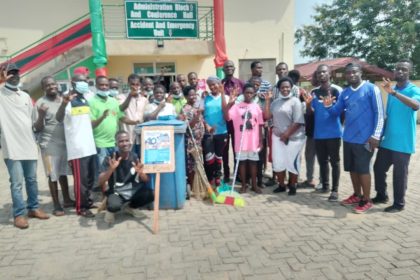Dr Justice Srem-Sai, Deputy Attorney-General, has called for the establishment of a National Crime Detection College to train investigators in advanced crime detection and evidence gathering to improve the country’s criminal justice system.
Dr Srem-Sai who was speaking at the First Annual Law Union Conference of the Central University, Faculty of Law, said Ghana’s criminal justice system was not adequately prepared to handle the growing number of suspected crimes and wrongdoings.
He explained that the system was overburdened and under-equipped, with limited institutional capacity to investigate complex economic and organised crimes.
He said while the Police Training College provided basic knowledge of evidence gathering, its curriculum focused mainly on violent crimes such as murder and threats against persons, with little attention paid to economic and corruption-related offences.
“From scratch, we are not ready to investigate very complex economic and organised crimes,” he said.
Dr Srem-Sai recommended that the government establish a National Crime Detection College to build local capacity in advanced investigation and crime detection.
He also proposed the introduction of lawyer-led or attorney-led investigation proceedings, explaining that involving lawyers from the beginning of investigations would save time, protect human rights, and ensure that only admissible evidence was gathered.
“In advanced countries, it is a new concept called attorney-led investigation,” he said.
“Instead of non-lawyers being allowed to bring in the evidence for lawyers to review later, the lawyer is involved at the beginning, and that saves time, saves resources, and most importantly, protects human rights.”
Dr Srem-Sai said the country’s major investigative bodies, including the Criminal Investigation Department, the Economic and Organised Crime Office, the National Investigation Bureau, and the Office of the Special Prosecutor, had very few lawyers and trained investigators.
He said establishing a national crime detection college and adopting lawyer-led investigations would strengthen accountability and ensure justice was effectively administered.
Professor Samuel Kwasi Dartey-Baah, Vice-Chancellor of Central University, expressed profound appreciation to the Deputy Attorney-General, other speakers, organisers, and all participants who contributed to the success of the first Law Union Conference.
He said the presentations reminded the gathering that ethics was not an optional course in legal education but the very foundation of the profession.
He said the conference raised key issues such as attorney-led investigations, the student–lecturer ratio, and effective leadership as factors that influenced the quality of legal education.
Prof Dartey-Baah said strong connections with industry and experience-based learning were fundamental to legal training.
He said the issue of internship could not be overemphasised since it bridges the gap between theory and reality. He said legal training must go beyond the pursuit of knowledge to the cultivation of conscience, adding that “a student who lays integrity in the classroom will one day defend justice in the courtroom.”






